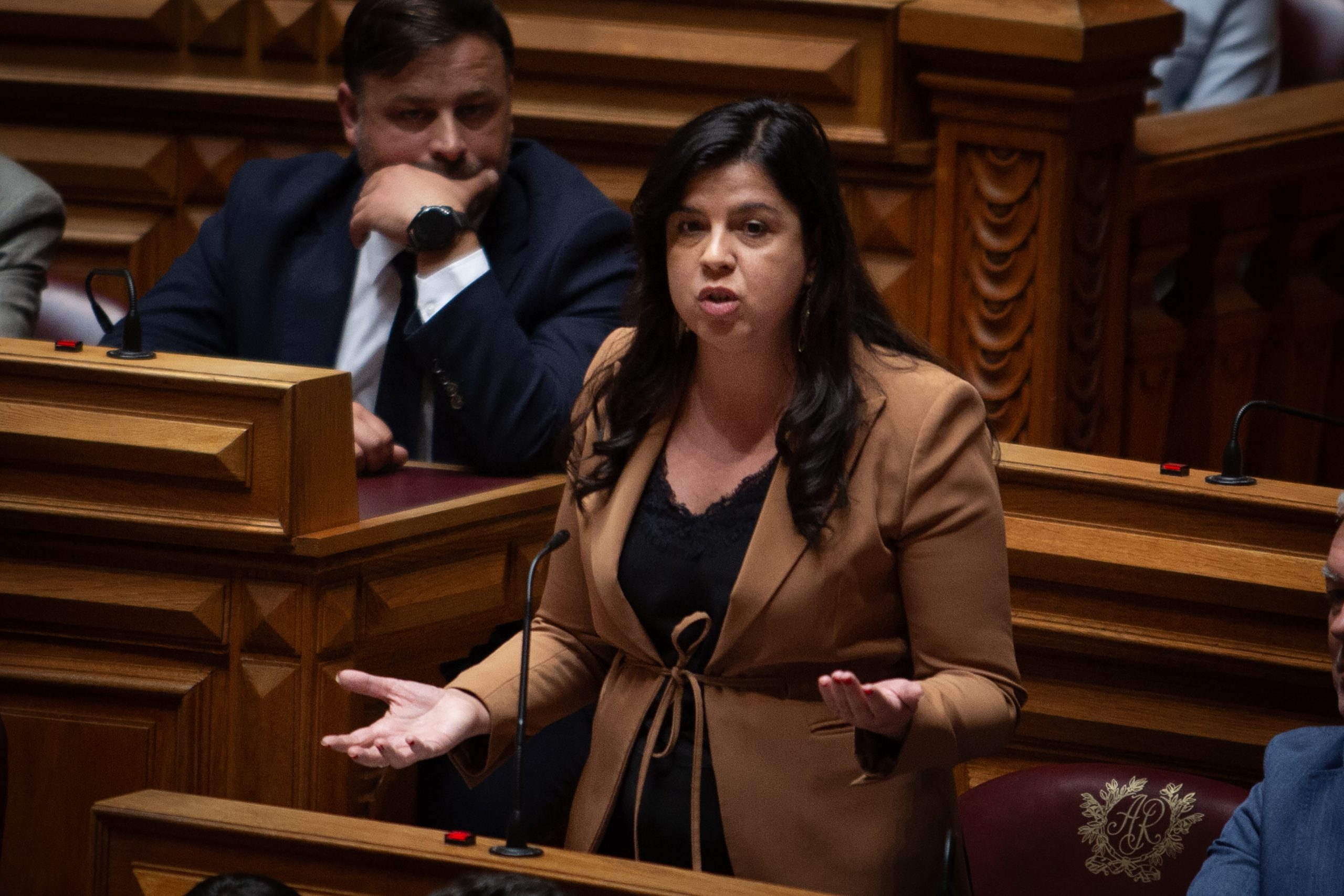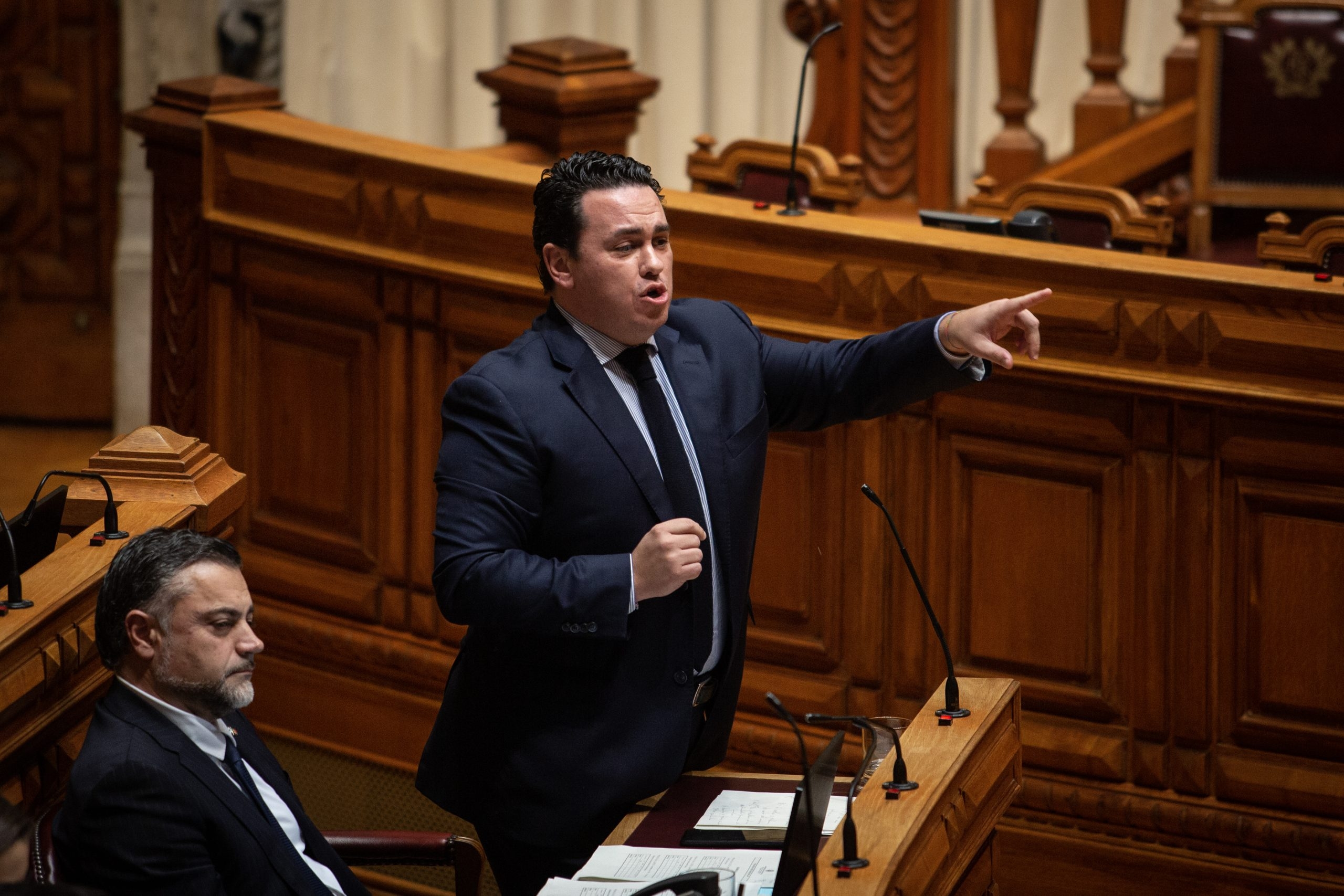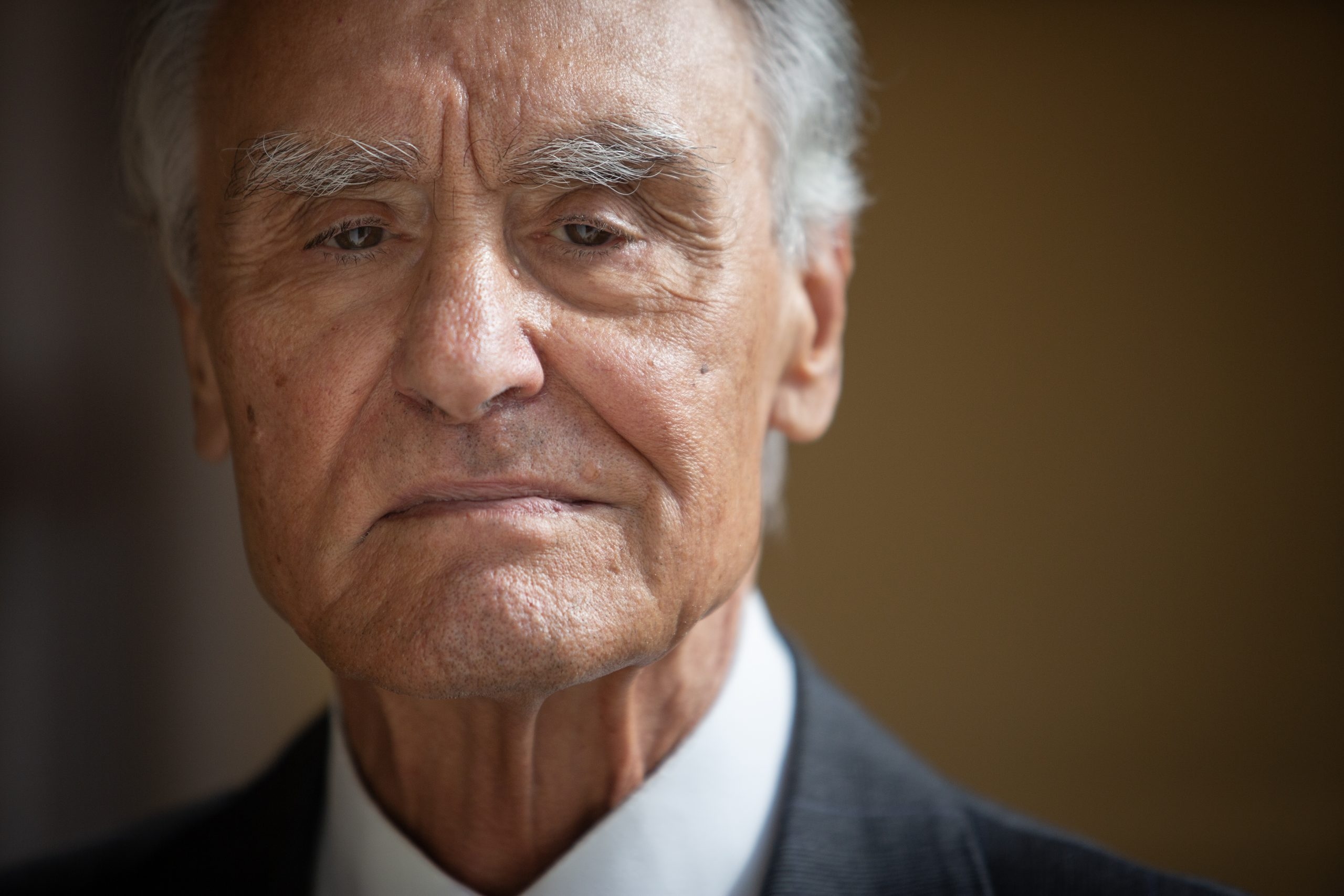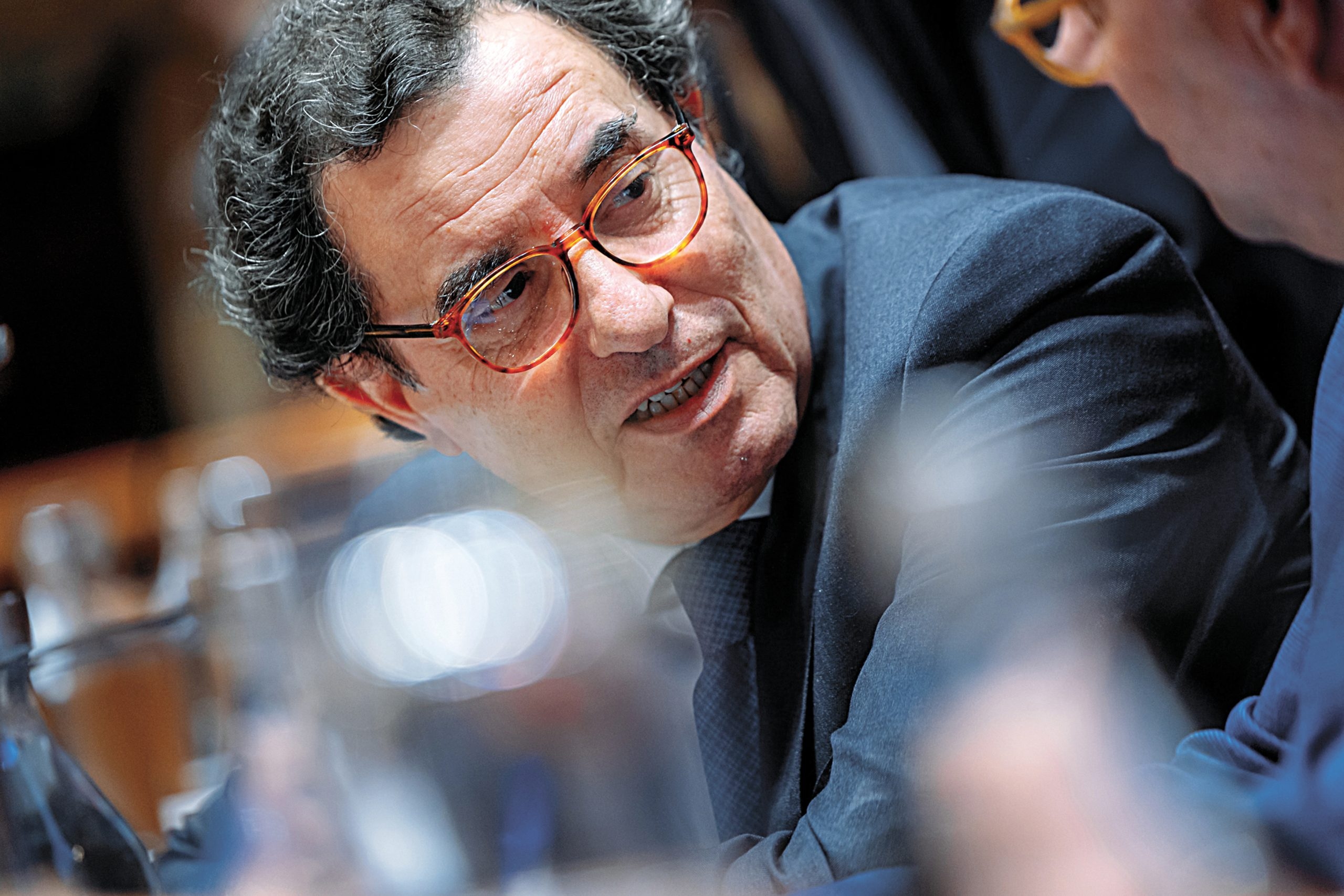Noronha Lopes beats Rui Costa in the last debate: the one with the shouting match.

Gabriel Alves — If I were a Benfica member, I would cast a blank vote!
The greatness of SLB (Benfica) is ruined by uncontrollable verbal chaos, inappropriate to the values of the institution and the SAD (Sporting Club of Benfica, a publicly traded company)!
Candidates lacking control over their words, coming across as enemies rather than partners aspiring to the greatness of a highly prestigious brand, built on deserving values—values that are not reflected in this empty rhetoric.
Sports, social, and financial aspects in a conversation that is inadequate in form and poor in content!
An hour and a half of personal argument! A sterile approach, where the loudest voice tried to silence the other, and vice versa!
Noronha Lopes on the attack, Rui Costa in defense.
Bad irony was unleashed when the future management of the most important sports-social brand in Portugal, with an international presence, was discussed.
Noronha Lopes says he will do it, and will do it. Rui Costa boasts about what he has done and what he will do.
Amidst words, attacks, shouts, accusations, asides, and justifications, in a tense atmosphere where both sides, individually , lost themselves in a discussion where the issues—considerable in the interest of the SLB institution—were lost without a clear presentation of a consistent project for the future of the Benfica brand!
A clarified project, a company, a sport — where football is a high-performance brand — in pursuit of a future solution to this debate, has not emerged clearly! Considering the movements of the football business at an international level, this debate does not seem to have much relevance to Portugal within its scope.
Sponsors—and potential sponsors—are watching the debate with caution. Sports authorities, and others, are paying close attention! Seeing is believing.
Given the speed at which this deal is developing, this debate leaves room for doubt! Benfica will be poorer for it!
It's up to the members to decide! The power they have today is to vote and elect the club president. After that, everything goes to the SAD (Sociedade Anónima Desportiva - Sports Limited Company)! In football, the SAD is in charge — this was clearly stated in the debate defending Rui Costa!
May the members, in the act of voting, be, in their civic and democratic participation, the living contrast to the last debate of the SLB campaign. May they demonstrate, through their civic duty, the value and greatness of the Benfica brand.
Miguel Cordeiro — “Everyone is tired of the campaign. The candidates have already said everything. The debate will be of little interest.” These and other phrases have been repeated in recent days — including by me, I confess. The final debate on BTV was anything but boring: it had arguments, accusations, graphs, personal attacks, and even moments of shouting. But was it enlightening? Did it help convince undecided voters? And did any candidate manage to “steal votes” from their opponent?
Adding up the answers to these three questions, the winner of this debate has to be João Noronha Lopes. The candidate from list F came from a poor showing in last week's head-to-head debate. There he had managed to win votes, but left a pale image. This Thursday was different: João Noronha Lopes wanted to show that he is a man capable of going to war and, certainly, he must have encouraged the members who have followed him this far.
But debates aren't meant to convince those who are already convinced—they're meant to clarify, win over undecided voters, and, ultimately, gather voters from the opponent. Noronha Lopes devised a strategy that succeeded in all three aspects. And he achieved more: he managed to show a different side of himself.
While Noronha Lopes initially had a prepared speech about the situation in football, as the debate progressed he became increasingly comfortable, irritating Rui Costa. The problem? This strategy contributed to a more confusing debate, where at times the candidates tried to show who could shout the loudest. It was an "all or nothing" situation for the candidate from List F. Less cordial, with his claws showing, but also irritated. He wanted to show that he is a member upset about the previous day's defeat, the direction the club is taking, and the strategy of the current Benfica president.
Rui Costa was prepared for many attacks. He knew what to say if Vieira was the topic; he knew what to say when the topic was the club's structure; and he had, at his fingertips, an answer for the signing of players — he even armed himself with scouting reports on athletes.
The problem is that Noronha Lopes had another strategy in place, and this led Rui Costa to have to play the cards he had prepared, even when the issues seemed to be heading in a different direction.
The current president knows he has a better image and has had clearer communication, and therefore entered the debate confident and wanting to dominate—but Noronha Lopes wasn't in the mood for that. Rui Costa became destabilized: he asked not to be interrupted when he spent almost the entire debate interrupting; he claimed that Noronha Lopes was debating alone when it was Rui Costa who consistently had more time on the clock; and he ended the debate clearly irritated. The current president used his final message to apologize for the heated discussion during the debate. Does Rui Costa, when stuck in traffic, ever ask himself: "Why on earth are there so many people on the road at this hour?"
Both shouted, but the final image of the candidates was different. Noronha Lopes was irritated with Rui Costa's management and plans for the club; Rui Costa, in turn, showed himself to be irritated with Noronha Lopes himself.
In the final analysis, João Noronha Lopes will have convinced more undecided voters; he is unlikely to have lost any votes; and he may even have captured some voters who voted for Rui Costa in the first round. Even so, Noronha Lopes knows perfectly well that the road ahead to winning the elections is very long. And Rui Costa knows it too. On the eve of the elections, a heated, intense debate remains, but one that offers little clarity on the ideas of the two lists. But wasn't it said that the candidates had already explained everything?
Rita Tavares — There's no worse day for any Benfica supporter than the day after a defeat, when the natural heartache is compounded by the barbs from rivals in cafes, at work, on the metro, via WhatsApp, SMS, or smoke signals. A torment. For any Benfica supporter? Okay, maybe not for João Noronha Lopes, who grabbed onto yet another Champions League defeat and tried to turn his day around (thank goodness!). He was ahead throughout the debate, but the slip-up with Rui Costa's final tackle, which caused the confrontation to end in shouting, cost him his composure and points.
Overall, he was much better, a stark contrast to his uncomfortable demeanor during the last debate, where he didn't know where to put his hands, let alone his attacks on Rui Costa. This time he knew: he seized upon the widespread frustration with the defeats and blamed the current "mismanagement" for it all. He even spoke directly to the electorate that holds the most votes—where Rui Costa reigned supreme in the first round—those "fed up" with having to explain "to their grandchildren" why Benfica loses. "I'm fed up with not winning," he exclaimed, prompting any average fan at home to agree—"me too!"—and leaving his opponent relegated to poor performances. He gained momentum and moved on to criticizing the business management (to assure that Benfica's commercial potential is far from exhausted) and the influence management (saying that Costa is too "soft" on those in charge of the League and the Federation). He was smiling and confident until his final statement, where he barely took his eyes off the paper and (perhaps for that reason) didn't see the tackle Rui Costa was making from the back.
It wasn't his style on the pitch, where he only avoided ending up in immaculate shorts like Néné because that perfect dance would trip up even the most phlegmatic opponent. In the political arena, he changes sides and makes the tackle, not caring about getting his tie dirty when things get tough. And they did. He couldn't dismantle Noronha's strategy, he was brimming with irritation, he always seemed annoyed. He brought papers which he threw at his opponent (reports from Pedro Ferreira, the football director Noronha Lopes wants, about the unproductive Meité), told him that only with "oil" can he execute his project, even at the end of everything, threw more papers, especially a repeated one: the supposed minutes of Noronha's departure as vice-president "after 58 days". It all ended with shouting. And, unfortunately for everyone, it wasn't shouting for a "goal".
observador





